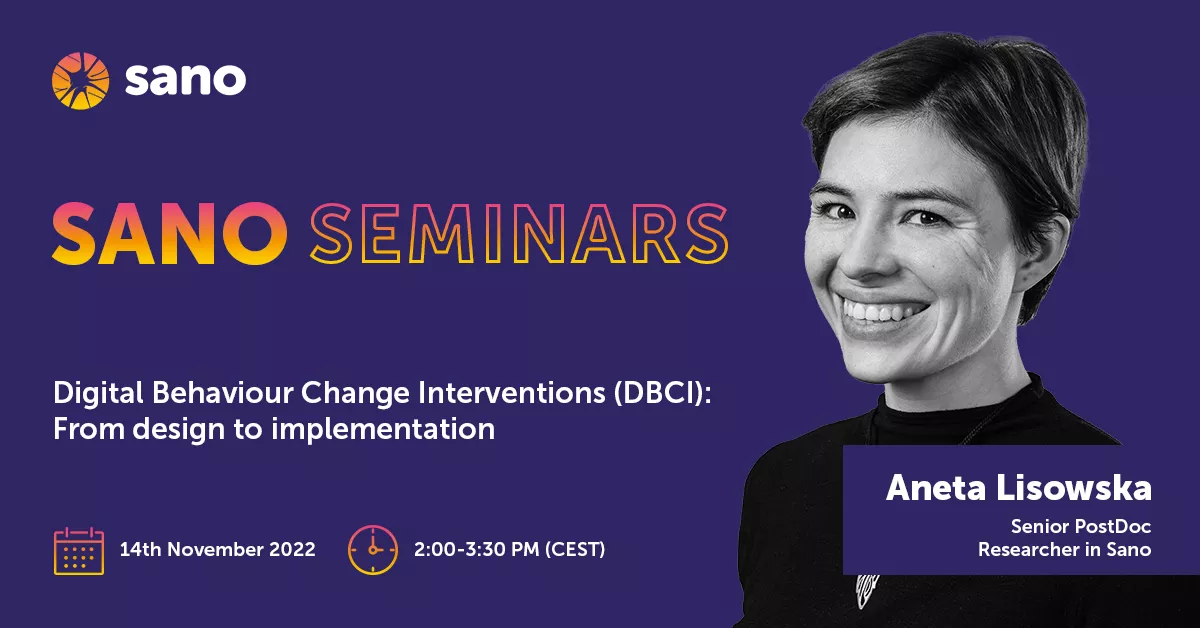
79. Digital Behaviour Change Interventions (DBCI): From design to implementation
Aneta Lisowska – Sano Center for Computational Medicine, Kraków, PL
Abstract
In this seminar we will discuss challenges with digital behaviour change intervention design and implementation. I will present SATO workflow which helps with patient-centered mobile application design, highlight issues with intervention adherence and propose few research avenues that might address adherence problems. You will also learn how Sano employees contributed to DBCI science through participation in smart work 4 smart life (SW4SL) study. In particular we will take a look at the quality of physiological signal captured by medical vs. consumer grade wearables and consider which information about person’s state can be inferred with use of machine learning from their physiological signal and which cannot. Finally I will share insightful feedback and observations of SW4SL study participants and present future research plans.
About the author
Aneta Lisowska is a senior postdoctoral researcher at Sano Center for Computational Medicine and Poznań University of Technology, developing AI methods for digital health interventions.
Aneta’s research journey began in Scotland where she obtained BSc in Computing and Cognitive Science from the University of Dundee and completed an industrial doctorate at Toshiba Medical Visualization System Europe and Herriot-Watt University. After obtaining Engineering Doctorate, she joined the AI team at Canon Medical Research Europe where she worked on AI methods for text and medical image analysis, delivering numerous patents utilizing deep learning methods in healthcare applications, and leading research projects focused on Active and Continual Learning.
After over 6 years of working in the medical industry on AI clinical diagnostic tools, Aneta decided to change the direction of her research towards designing AI-based applications for ubiquitous mobile devices. At the start of 2021 she joined Poznań University of Technology where she develops machine learning models for personalised coaching and decision support. In particularly, she works on ML-based approaches supporting patients with treatment adherence and development of positive health habits.
In October 2021, Aneta joined Sano Center for Computational Medicine where she works on chronic illness prevention applications. Her most recent study investigates how to utilize machine learning for increased engagement with mobile and wearable health applications.
In 2022 Aneta also obtained MBA from Edinburgh Business School.

